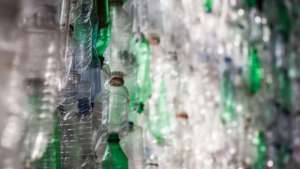From the Series

Plastic pollution is a popular current topic because of its universal impact on the environment. We’ve covered all sorts of solutions to the plastic problem from worms that digest plastic to a new eco-friendly way of making plastic. Now, in a recent discovery, Kyoto University researchers have identified and cultivated a naturally occurring enzyme that digests plastic and breaks it down into two harmless components.
The researchers discovered the enzyme after five years of sifting through plastic waste outside a PET recycling plant. Out of the 250 samples collected, they managed to pinpoint a bacteria that has adapted to living on polyethylene terephthalate (PET), which is a common form of plastic used in bottles. They called the new species of bacteria Ideonella sakaiensis.
There is a major distinction between this bacteria discovery and other bacteria that can decompose plastic. Previously found types of bacteria have been difficult to cultivate, but researchers were able to identify and reproduce the plastic-eating enzyme in the Ideonella sakaiensis bacteria.
The research team has already manufactured the enzyme and demonstrated how PET can be broken down with the enzyme alone. With this enzyme, we can develop a new recycling method where plastic waste can be decomposed into easy-to-handle, harmless chemicals.
According to the University of Hull’s Biological Chemistry lecturer Mark Loch, all microorganisms have adapted over time to break down natural polymers found in natural organisms like plants. “But plastics have only been around for about 70 years,” says Loch. “So microorganisms simply haven’t had much time to evolve the necessary biochemical toolkit to latch onto the plastic fibres”.
Kyoto University researchers found that Ideonella sakaiensis had adapted to its PET environment and developed the special enzyme in a process of evolution.







